US prisons described as ‘hellholes’
Lashawn Thompson was found dead in his cell in an Atlanta jail with more than one thousand insect bites all over his body.
His body was discovered in a filthy jail cell in September, ignored by medical staff and eaten by insects and bugs.
The United States holds the most prisoners in the world.
Many of the thousands of prisons, jails and correctional facilities around the country are in deplorable and inhumane conditions.
Millions of Americans are held in these facilities, with little hope of staying out after being released, since most find their way back to prison one way or another.
The United States is home to the world's largest prison system with close to 2 million people behind bars.
The conditions in US jails and prisons are often inhumane with overcrowding, violence, and, inadequate health care, plaguing the system.
Many prisoners are also subjected to long periods of solitary confinement, which can cause severe mental and physical harm.
An enormous number of prisoners are held in 1566 state prisons, 98 federal prisons, 3116 local jails, 1323 juvenile correctional facilities, 181 immigration detention facilities, and 80 Indian Country jails.
As well as countless military prisons, civil commitment centers, state psychiatric hospitals, and prisons in US territories.
LaShawn Thompson was held in one of the thousands of these facilities, left to die, and eaten alive by bugs and insects.
The image is hard to look at 35 year old was Shawn Thompson unresponsive and a Fulton County jail cell covered but his family's attorney says are insect and bedbug bites.
US TV Host
The scene was so horrific that the detention officer said she would not even administer CPR when they found him because she was freaked out; in her words, freaked out.
Ben Crump, Thomson’s Attorney
Thomson suffered from mental health issues and was diagnosed with schizophrenia. He was placed in a psychiatric ward in jail three months before his death.
Prisoners in the US face significant barriers to accessing adequate health care. Many prisoners suffer from chronic illnesses, such as diabetes and heart disease, but are often denied necessary medication and treatment.
The result is that many prisoners suffer unnecessarily and are at risk of dying from preventable illnesses.
They are overcrowded, they are underfunded, in many cases, the way they're designed, the newer ones even, the way they're designed.
They're putting a bunch of people in these pods, in these areas, these community areas, with the cells attached, where they pretty much have to police themselves within the pods within the tiers, which is what you see in places like El Salvador, maybe, in countries where they just put people away in these facilities and then they basically just lock them away.
And that's kind of what you're getting these days on a smaller scale and I'm finding more unique individualized scale in these jails.
What happened with Shawn Thompson is unbelievable! It is immoral, it is amoral, and, it must not be allowed to continue.
Scott Creighton, Political Analyst
The result of the official autopsy carried out on Lashawn Thompson returned a verdict of "undetermined" as his cause of death. An independent autopsy, which could clarify matters, costs from $20,000 to $50,000, which is far beyond the means of his family.
Those behind bars received from guards and deputies who patrol, an indisputable exclusive, found Dylan Kammeraad was beaten by officers at a Michigan jail. He was a former MMA fighter.
In 2019 Terry Whitehead would be beaten by former corrections officer, David M. Shorts; these punishments happen at all times of the day.
One factor contributing to the crisis in US jails and prisons is the lack of focus on rehabilitation and reintegration.
Many prisoners are released back into society without the necessary skills or resources to succeed in civilian life, leading to high rates of recidivism.
Moreover, many former prisoners are unable to secure employment or housing due to their criminal record, perpetuating a cycle of poverty and crime.
And without greater investment in education, job training and mental health care, this cycle is likely to continue.
All of a sudden you're pulled over, you're taken into custody. Often your family is not notified for hours if not days thereafter.
And because of the pretrial system that exists in America, if you do not have money to bond out, or if you do not have someone who can post a cash bond for you to be released, you have to stay in custody until such time as you can go to trial.
During that period of time, as you can imagine, you've often lost your job, if you had a job, you've lost your car, you had car payments. You've lost your apartment if you needed to pay rent, your all of your possessions have been either thrown out or auctioned off.
Even if you are found not guilty and do not proceed to prison. Your life often has to be restarted from scratch as a result of charges against you because of the barriers to justice that exists in America.
Robert Patillo, Political Activist & Attorney
The disproportionate impact of the US prison system on marginalized communities must be addressed. Black and Latino individuals are incarcerated at significantly higher rates than white individuals, often as a result of systemic racism and poverty.
The result is that these communities are disproportionately affected by the negative impacts of the prison system, including the perpetuation of poverty and the destruction of families.
How does mass incarceration affect African American communities?
I know a lot of people who are activists in this cause have been incarcerated before and I'm one of them. I was incarcerated for a year in Richmond and for about a month here in Tampa.
This is long time ago. But I can tell you that from that time, and in places where you said these were, you don't particularly think of African Americans as the majority, in the prison population they certainly are.
So I've seen this firsthand. Yes, it is a disproportionate percentage of the population in the prisons, in jails, in the penal system. And the cost on the communities is extensive.
There's the cost of family members having to take care of them; there's the cost of constantly worrying about the future of what what's going to happen to you.
There's the cost that when young people see it as more likely in their community, their future will be in a prison rather than in a college and it is based on the reality in which they live. The cost of that is extensive.
Scott Creighton, Political Analyst
The US prison system is a profitable industry. Prisons and correctional facilities across the country generate billions of dollars in revenue each year, largely through the incarceration of individuals.
One way in which prisons make money is through the use of inmate labor. Prisoners are often forced to work in various industries, including manufacturing, agriculture, and call centers without any real compensation.
Inmate labor resembles slavery
Ava Marie DuVernay, the filmmaker had a documentary several years ago called "the 13th", about the 13th amendment.
The post Civil War amendments, the 13th, 14th, and 15th amendments, were meant to end slavery, to give constitutional rights to African Americans, and to give them the right to vote.
However, states and federal prisons have found ways to abrogate this prohibition against slavery through the inmate labor system.
Inmates are often contracted to work in state projects for pennies an hour seeing the wages that you would expect in a slave camp around the world. We're talking about printing license plates for five cent an hour, doing landscaping projects.
There was a scheme in Georgia several years ago to ban illegal immigrant labor in America and then replace that with cheap prison labor in order to help the agricultural industry.
This is clearly an effort to reinstitute the type of serfdom and plebiscite labor that was very endemic after the Civil War in the United States of America.
Robert Patillo, Political Activist & Attorney
In addition, private prisons have become an increasingly popular way to profit from the incarceration of 'wrong doers'. These for profit facilities are owned and operated by private companies who have been awarded contracts with state and federal governments to house inmates.
Private prisons tend to prioritize profits over rehabilitation and safety, leading to lower standards of care and increased violence within the facilities.
How does the profit driven US prison system affect the quality of the care inmates receive?
America went through this process of privatization of the prison system. As a result, the states now pay private prisons to incarcerate individuals. ... the prisons are paid by the number of people that they can keep in those in those prisons cells.
So there's a perverse incentive to keep people locked up, and you keep them locked up longer. And because you have a profit driven capitalistic model, of course, prisons are incentivized as for profit companies to provide the most substandard care possible. Because there are very few rights that are afforded to prisoners, because there are very few opportunities to complain or to be heard for prisoners, because they're often pariahs in society.
Robert Patillo, Political Activist & Attorney
The profit driven nature of the US prison system has led to a number of ethical concerns, including questions about the quality of care provided to incarcerated individuals, the impact on communities and families, and the role of private corporations in the criminal justice system.
Critics argue that the profit motive creates perverse incentives to incarcerate more individuals, limit access to rehabilitation services, and to cut corners on safety and health standards.
Along with the privatization comes deregulation and nobody is looking into it. Nobody is checking up.
It's like the case for Shawn, how could that possibly have come to that kind of nightmare where that young man was living for that long?
How could that have happened in our system?
And the answer to that question is: nobody was looking. Nobody was looking because it doesn't profit them to see the blemishes, to see the holes in the system. It doesn't.
That's what privatization of prisons does. … it's not a moral question anymore. It's one of business and there are no morals in business.
Scott Creighton, Political Analyst
Perhaps one of the most controversial aspects of the US prison system is the use of solitary confinement.
Many prisoners are placed in solitary confinement for extended periods, sometimes for years at a time. This practice is known to cause severe mental and physical harm leading to long term mental health problems and even suicide.
Despite this, the use of solitary confinement continues to be widespread in US prisons, often as a form of punishment for minor infractions.
I wake up, soaking wet, sweating some time, or just feeling though you've been squeezed to death.
Prisoner in Solitary
Confined to a space of 2 meters by 3 meters for 23 hours a day, for decade after decade; now imagine doing all of that alone. This is a daily occurrence and a fact of life for tens of thousands of prisoners in America.
Solitary confinement is the inhumane practice of isolating inmates in a cell for 22 to 24 hours a day with limited or no human interaction, exercise or access to educational or recreational programs.
In the US, it's estimated that around 80,000 prisoners are held in solitary confinement on any given day.
The practice is controversial and many human rights organizations, medical experts, and, lawmakers, have called for its abolition, citing its detrimental effects on Mental Health and Rehabilitation.
Solitary confinement is a clear violation of the United States Constitution, in spite of this it is often used as a method for inmate control, for individuals who are incarcerated.
The Eighth Amendment has a clear prohibition against cruel and unusual punishment. I think that any rational person will say that locking a human being away in a concrete cell with no access to sunlight, no access to fresh running water, no human interaction for up to 20 hours or 22 hours a day, other than short rest stops in order to step outside eat, and often defecate, will be a cruel and unusual punishment.
The effects of these can be often long, long term, if not lifetime mental health damage as a result of solitary confinement. Peep inmates who have returned home have talked about having Post Traumatic Stress Disorder. They talked about the trauma, the nightmares that persist throughout the remainder of their lives, the inability to function and interact with human beings, the inability to form relationships after being locked away in confinement of that nature for, sometimes, years at a time.
The jails use the excuse that it's about controlling the inmate population. However, because of the constitutional prohibition against cruel and unusual punishment, this should not be allowed and would not be allowed.
Robert Patillo, Political Activist & Attorney
An Indiana inmate, Joshua Macklemore, lost 45 pounds over 20 days of solitary confinement and basically starved to death in 2021.
The 28 year old Macklemore was mentally ill and placed naked in solitary confinement without any medical or mental care after he had pulled a nurse's hair in the hospital.
Video surveillance shows him having psychotic episodes while Jackson County jail staff do nothing for him until he slowly deteriorates and dies.
Confinement is a way to turn a borderline criminal misdemeanor type criminal into a felon. It is, its torture. It's the antithesis for what you want to do.
The point of prison isn't just to punish, the point of prison is to rehabilitate so that you don't have recidivism, you don't have people coming back into the prison system every time you open the door and let them back out. It's not just a fear model, but it's a rehabilitation model.
And so many countries all across the world do such a better job with recidivism, with keeping people from going back into the jails, getting people ready to become part of the communities and feel connected to the communities.
If you isolate somebody for, I mean, we're talking in some cases a years that keep people in isolation, this isolation technique, this was something that was used in prison camps during wars, or prisoner of wars, where you would isolate people and you would put them and lock them away and put in little cells, for years and years, until the end of the war. It creates monsters.
Scott Creighton, Political Analyst
The US prison system must address the issue of racial bias and discrimination.
Black and Latino individuals are disproportionately represented in the prison population, often as a result of systemic racism in law enforcement and the justice system.
This is evident in the harsher sentences imposed on people of color for the same crimes as their white counterparts. Nothing has been truly done to address this issue, and, as the years go by, the situation seems to get worse.
Indeed, the founding document of America, the constitution, enshrines within it that African Americans will be treated as three fifths of a human being for purposes of representation in the United States.
This system of oppression of African Americans has continued until the present day, because, what we have found is that in America there is a clear correlation between poverty, between education, between health care, and, further incarceration later in life.
Because of this when you look at the historic system of oppression of African Americans, the lack of access to proper housing, through systems of redlining, the lack of access to job opportunities, through racism and segregation, the lack of access to health care and educational opportunities, through segregation and substandard schooling systems.
This has led directly to the place where we see right now, where you have a disproportionate representation of African Americans in the nearly 2.2 million people in the United States who are currently incarcerated.
You have a system that is in place which puts barriers to justice, particularly along racial lines, in the United States of America, and the fact that there is no appetite to handle these issues, that there has been nothing along the lines of a Truth and Reconciliation coach.
There's been nothing along the lines of a conversation or even an apology for [sic] the United States Government for slavery and segregation.
Robert Patillo, Political Activist & Attorney
In the United States, they call solitary confinement, the Secure Housing Unit or the SHU Program, which is the special holding unit, which is known as The Hole.
Prisoners are held in the hole for punishment, security reasons, or simply because they're being transferred to another prison.
In a country with only 10 cities with populations over a million, jails and prisons in America hold more than 2 million people.
Going to the hole in US prisons for months is very common, and many Americans who have been incarcerated know that they will probably someday end up back in the hellhole.
VIDEO | Press TV's news headlines
Senior Russian general shot and wounded in Moscow: Officials
UK ordered in 'milestone' court ruling to pay $570 million for colonial-era massacre
VIDEO | Defying the rubble, Gaza opens its first face-to-face school since start of war
‘Ready for next round’: Million-man rally in Yemen backs Gaza, resistance
FM Araghchi departs Muscat for Doha following nuclear talks with US
Israeli keeps killing more Palestinian civilians in Gaza amid relentless ceasefire violations
Aliyev: Azerbaijani territory will not be used for threats against Iran


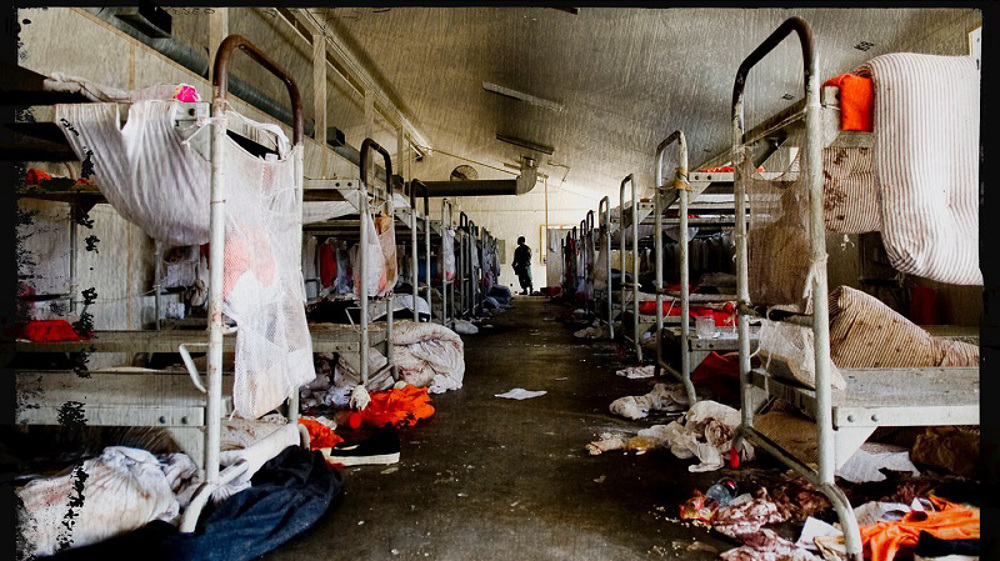
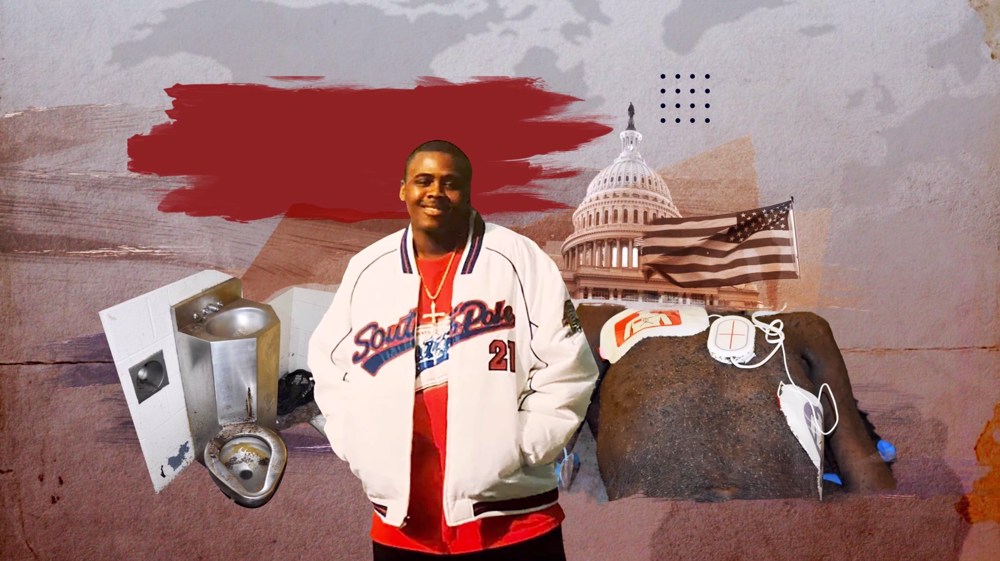
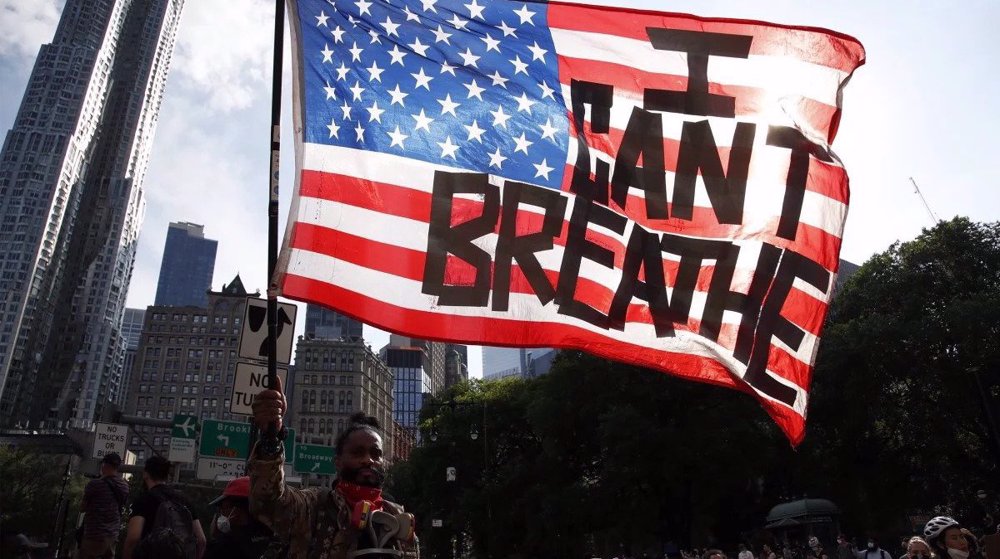
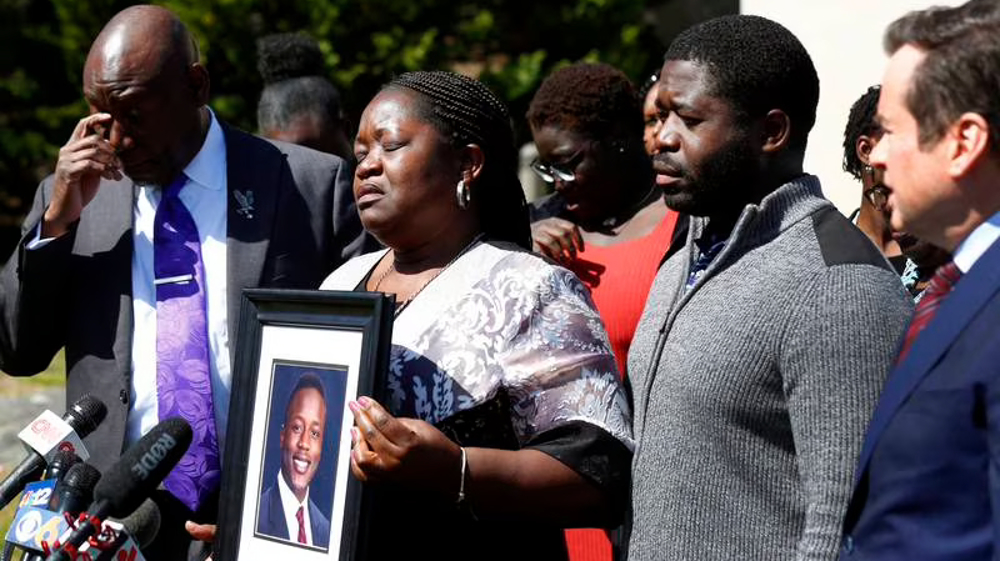
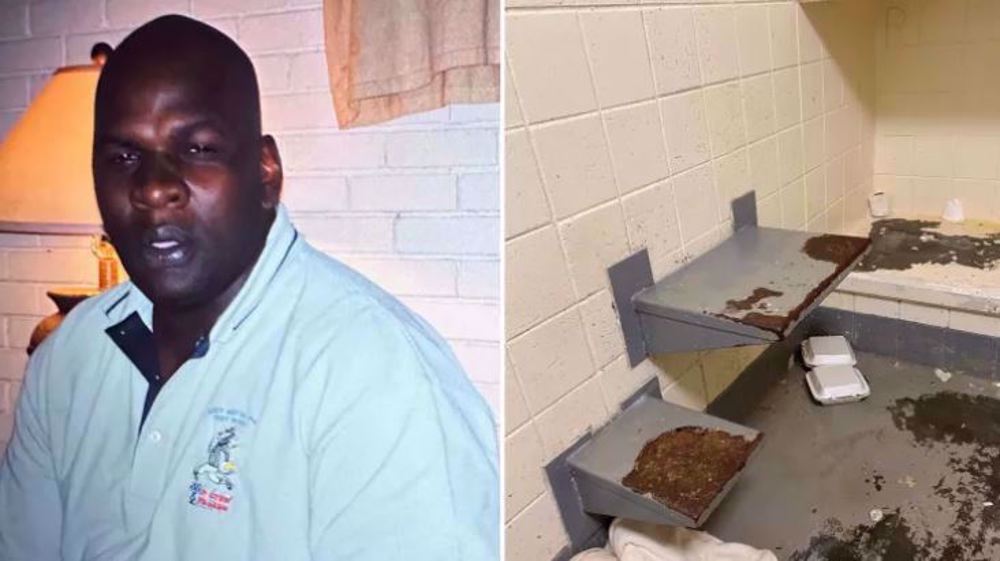
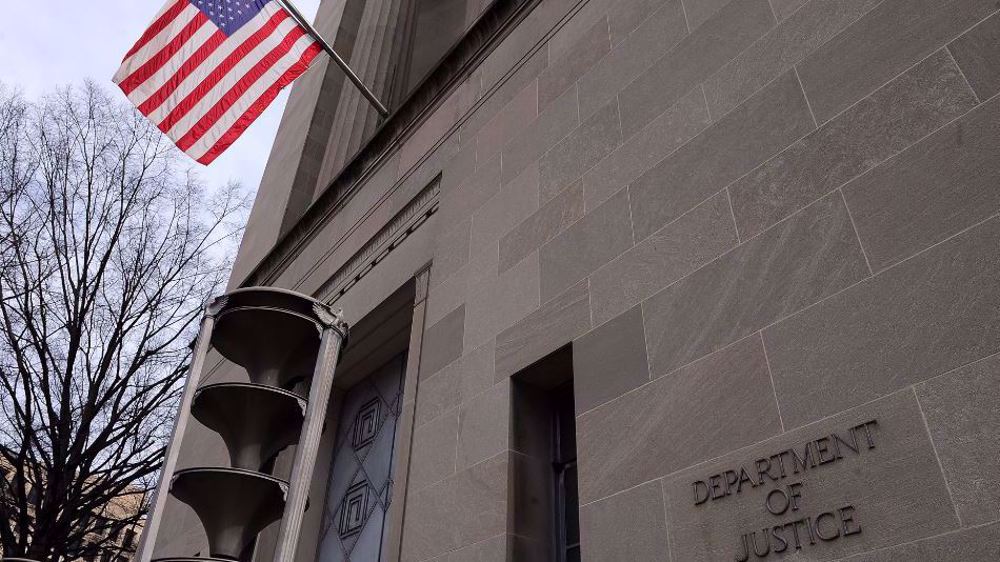
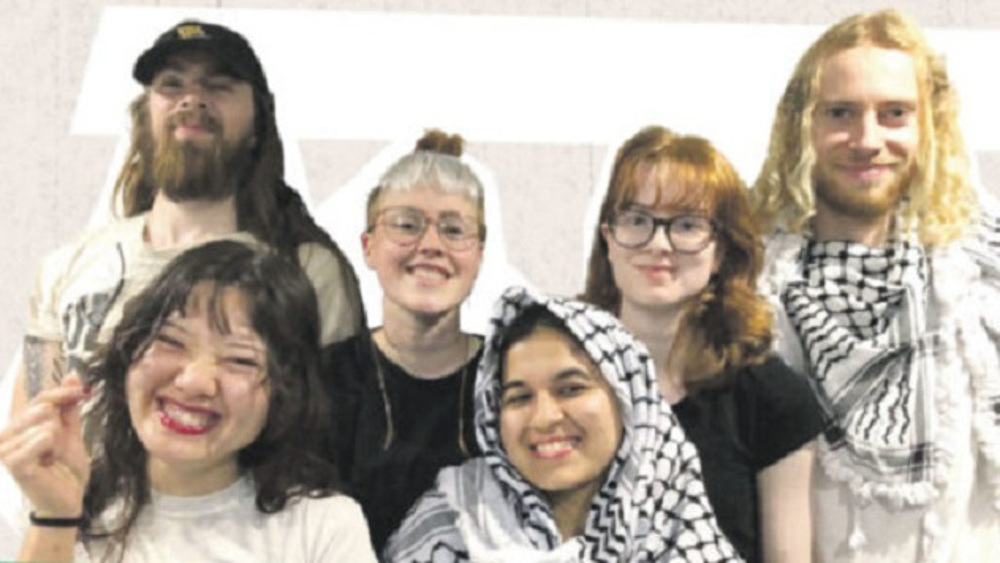
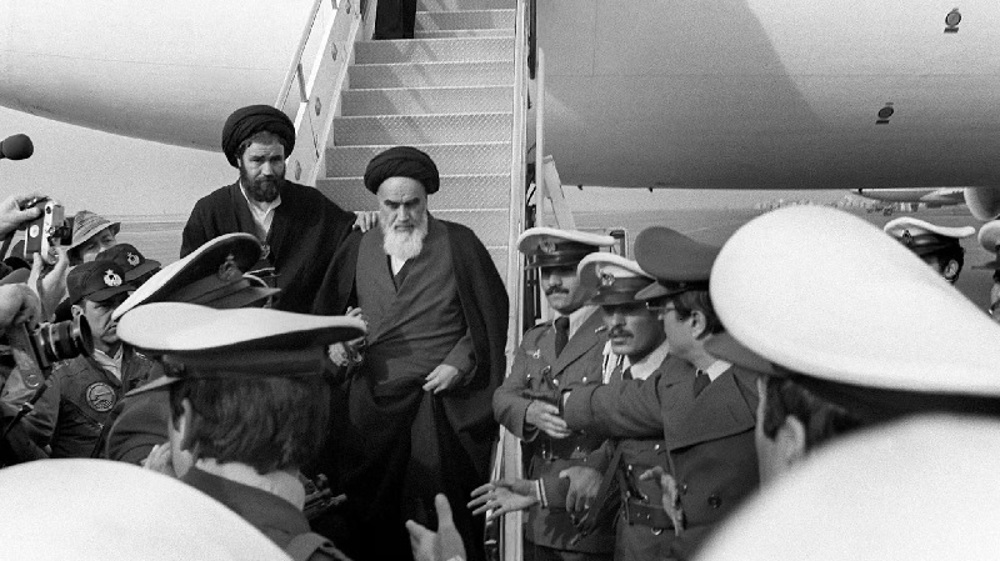
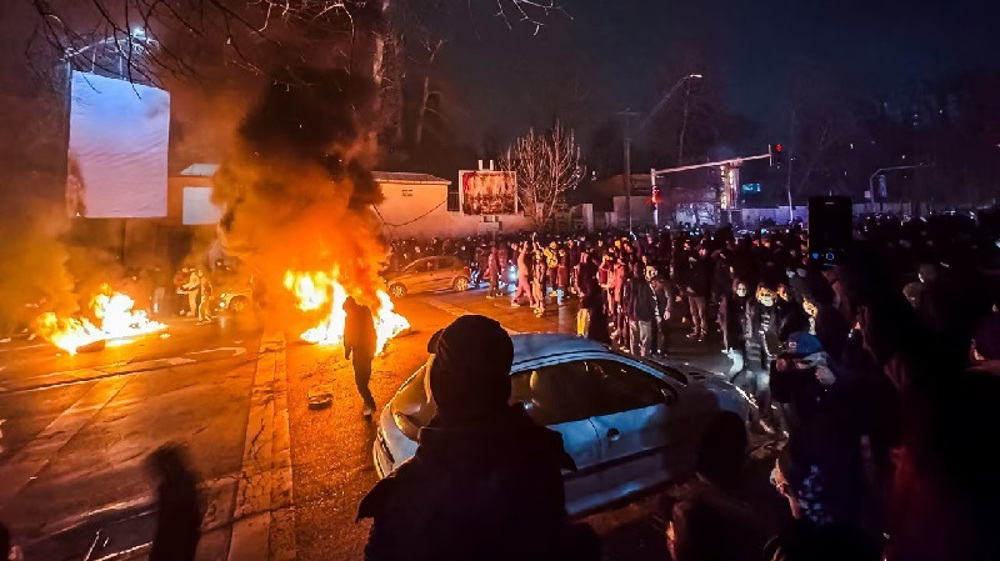




 This makes it easy to access the Press TV website
This makes it easy to access the Press TV website